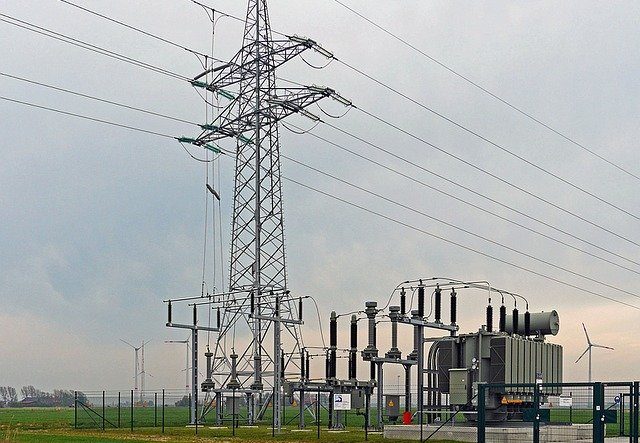State Power Project
At statepowerproject.org, we track recent and ongoing litigation challenging state policies as unconstitutional or preempted by federal law. We have also developed guidance on how states can work within legal limits to achieve energy policy goals. Our State Power Project work includes regulatory filings and papers about the interplay between state clean energy programs and federally regulated power markets. We argue that federal law is compatible with state clean ambitions and federal regulators can harmonize market rules with state clean energy programs.
Documents
Related work on state authority and FERC-regulated interstate power markets:
- Letter to Minnesota State Senator Frentz. Argues that a then-pending bill in the Minnesota Legislature that would require utilities to meet a 100% clean energy target was consistent with the U.S. Constitution and should any party file a challenge in federal court the balance of legal authority would favor Minnesota (Feb. 2023).
- Comment on a Proposed New England Clean Energy Market. Argues that states and not FERC should regulate the new forward clean energy market (FCEM) because sales of FCEM products would not be under FERC’s jurisdiction, the FCEM administrator would not be a FERC-regulated utility, and the administrator would not be allowed to file the market rules for FERC’s approval (Feb. 2023).
- Brief of Electricity Regulation Scholars. Provides a historical account of the word discrimination in laws regulating common carriers and utilities to rebut fossil fuel generators’ argument that the Federal Power Act’s prohibition against unduly discriminatory rates requires FERC to police the interstate effects of state clean energy policies (Aug. 2022).
- Response to Fossil Generators’ Protests about PJM’s Proposal. Rebuts arguments that FERC must adopt particular market rules that disadvantage resources required by state policies (Sep. 2021).
- Testimony and Supporting Research Presented at FERC Conference on Carbon Pricing in RTO/ISO Markets. Argues that FERC has authority to approve a state-determined carbon price that is implemented in RTO/ISO energy markets and responds to questions on FERC’s September 30, 2020 carbon pricing technical conference agenda (Sept. 2020).
- FERC’s Clean Energy Boycott Distorts PJM Prices and Discards History explains how FERC’s December 2019 order about PJM’s capacity auction departs from precedent and divorces the connection between capacity prices and reliability (Jan. 2020).
- Comments to FERC on Proposed Revisions to Its Rules Implementing Section 210 of the Public Utility Regulatory Policies Act of 1978 (PURPA). Argues that the proposal cannot be reconciled with the statute’s unambiguous instruction to encourage development of Qualifying Facilities. Legislative History Appendix (Nov. 2019).
- Remarks at a June 2019 Workshop for PJM Stakeholders and State Regulators. Summarizes the implications of recent federal court decisions about state authority to subsidize power generation and speculates on FERC’s pending decision about PJM’s capacity auction rules (Jun. 2019).
- Remarks at the June 2019 NEPOOL Participants Committee Meeting. Encourages market participants to adopt a regional decarbonization strategy (Jun. 2019).
- The Supreme Court Should Reject Requests for a Do-Over about State Clean Energy Programs. Urges the Court to reject petitions seeking of review of decisions about state clean energy programs (which it did) because the Court’s previous decision on electricity regulation strikes the right balance between state and FERC authority in restructured power markets (Jan. 2019).
- Comment to FERC on PJM Generators’ Stranded Cost Arguments. Urges FERC to reject generators’ attempt to force a choice between a “clean” capacity auction and stranded cost recovery (Nov. 2018).
- Comment to FERC on PJM’s Capacity Market Proposals. Argues that generation procurement is a program of cooperative federalism and that PJM’s proposals to pay lower rates to some resources paid for their environmental benefits would disrupt the balance of state-federal authority (May 2018).
- State Clean Energy Policies at Risk: Courts Should Not Preempt Zero Emission Credits for Nuclear Plants. Recaps the evolution of state and federal roles in regulating the electric industry and argues that states’ zero emission credit programs for nuclear plants adapt traditional state authority over power generation and utility portfolios to today’s restructured electric grid (Apr. 2018).
- Regulatory Paths Forward for a Cleaner Grid. Summarizes discussions at a workshop about the future of wholesale electricity markets and how they might account for state clean energy policies (Feb. 2018).
- Brief of Electricity Regulation Scholars. Argues that Illinois’ Zero Emission Credit program is consistent with long-standing principles of state utility regulation and that opponents are advancing a jurisdictional theory that would upset the balance between state and federal authorities (Nov. 2017).
- Minimizing Constitutional Risk. Provides policymakers with key lessons from recently filed lawsuits and suggestions on how states can work within their constitutional limits to achieve energy policy goals (Oct. 2017).
- Comments on the Department of Energy’s Proposed Resiliency Pricing Rule. Argues that the proposal is legally deficient and cannot form the basis of a final rule (Oct. 2017).
- Easing Jurisdictional Tensions by Integrating Public Policy in Wholesale Electricity Markets. Explores FERC’s authority under the Federal Power Act to approve an RTO tariff that includes zero-emission energy procurement or a carbon price and concludes that approval of a wholesale market tariff that incorporates public policy goals is consistent with the generous construction of the FPA afforded by courts (May 2017).
- PURPA @ 40: Remarks at NARUC’s 2017 Winter Meeting. Recaps the purpose and history of Title II of the Public Utilities Regulatory Policies Act of 1978 and comments on recent controversies (Feb. 2017).

